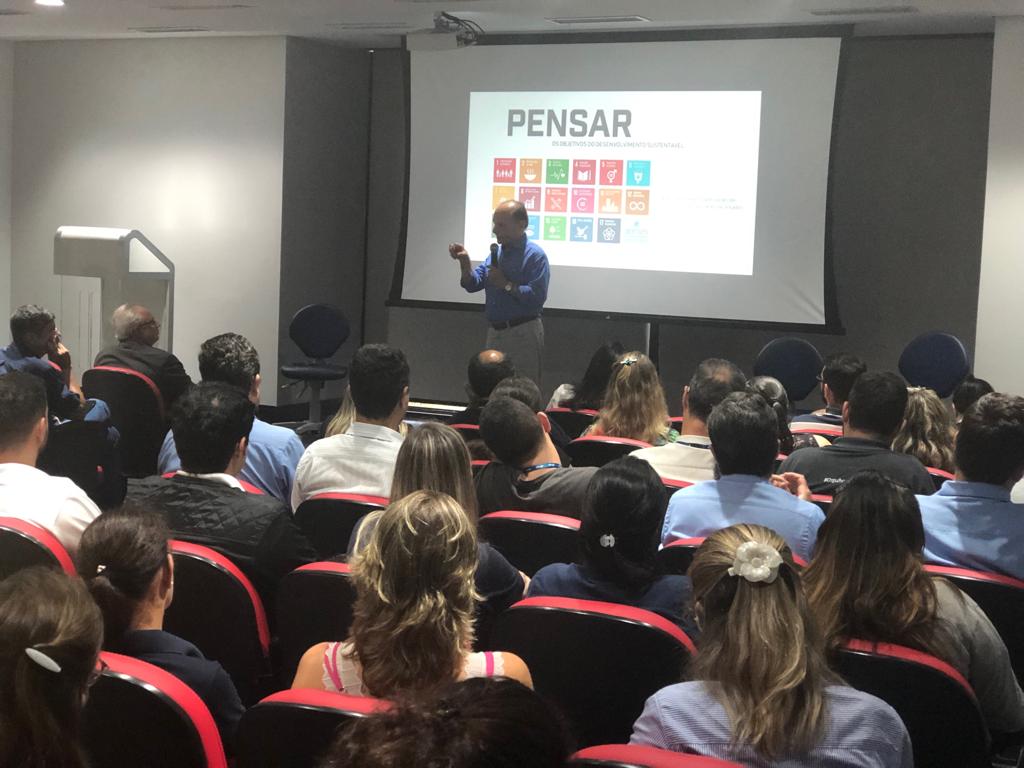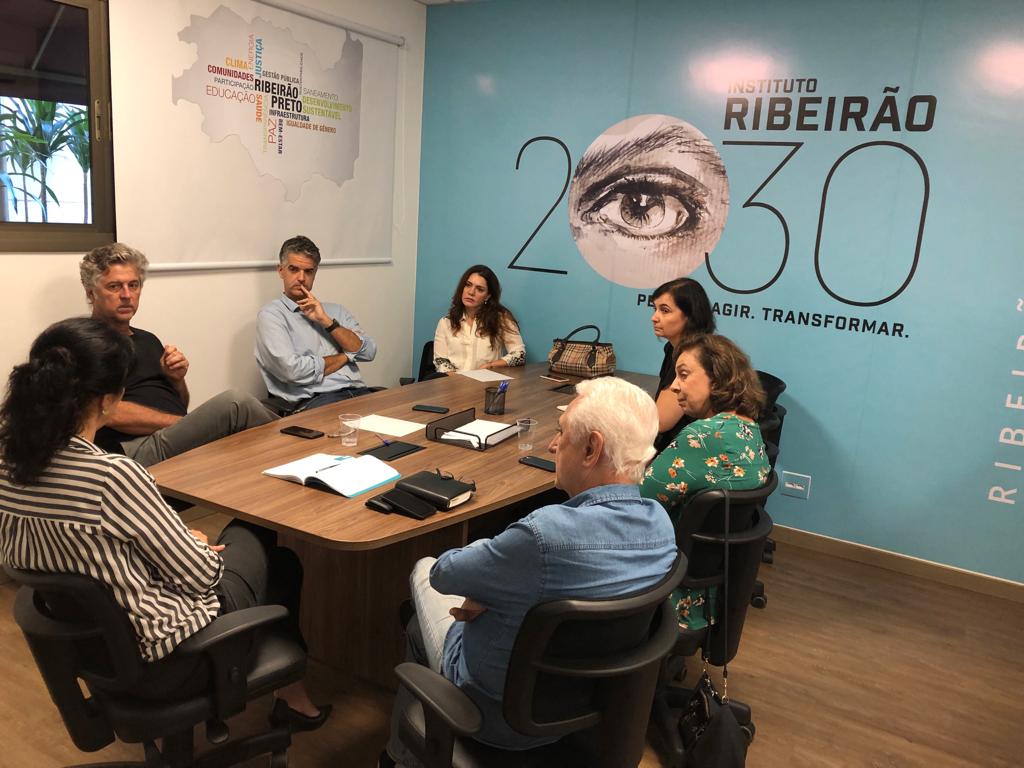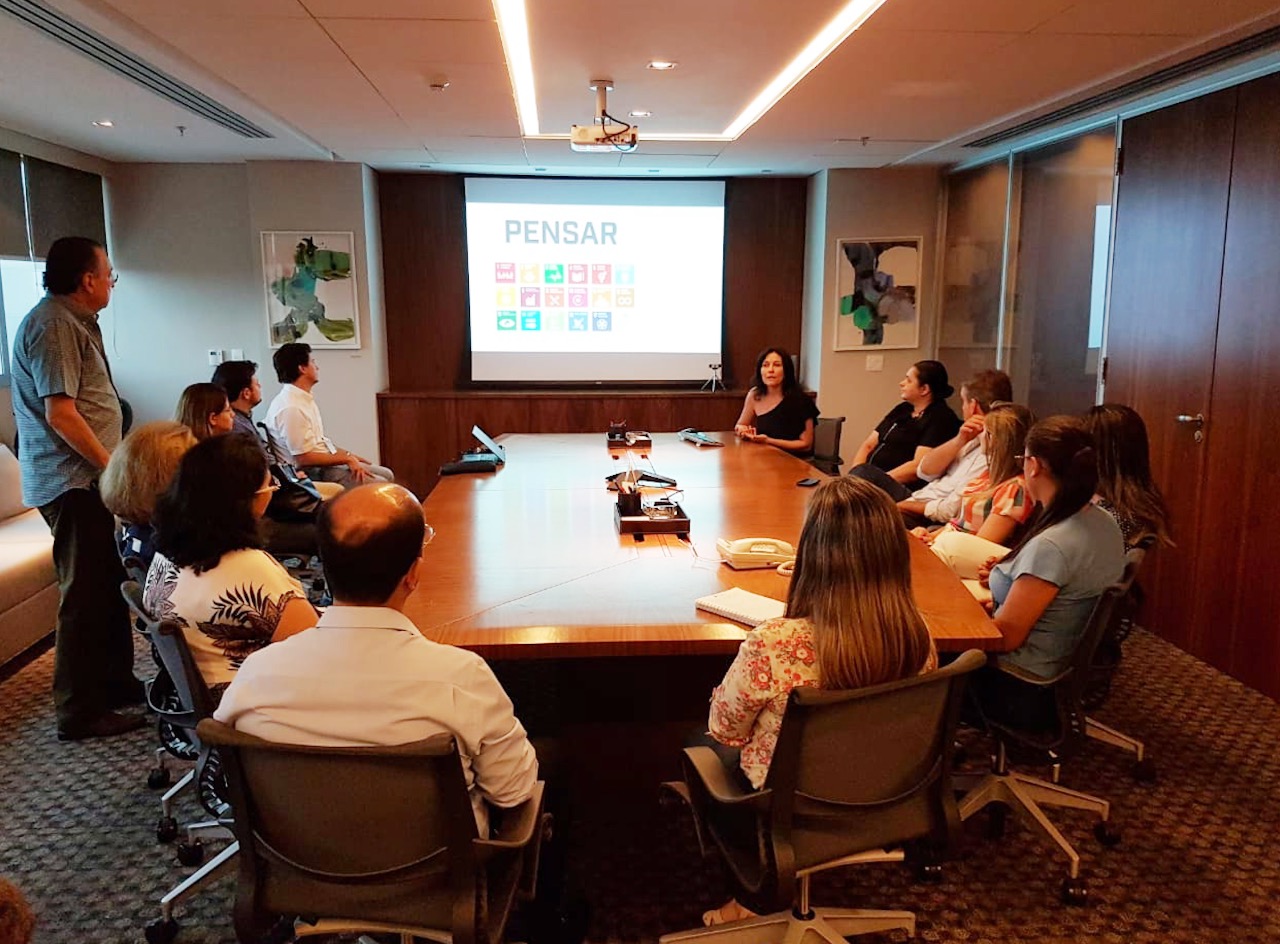Voluntary Organized Society - Diagnosis, Local Goals and Policy
Description
In April 2018 Ribeirão Institute 2030 was created in the city of Ribeirão Preto, especially to highlight the UN agenda. The initiative, organized by entrepreneurs, liberal professionals and researchers, represents an organized and voluntary civil society action that everyone must act in favor to the SDG’s fulfillment . The lack of commitment of the city with the theme has led this group to organize and since the creation of the Institute several actions are being promoted. The Institute will remain in business until the year 2030.
The main objective of Instituto Ribeirão 2030 is to press the political power and society to promote the necessary changes so that the 17 Sustainable Development Gols are fulfilled until the year 2030. To be successful in its agenda, the Institute is, itself, being committed to perform several actions. One of the most important, from which the other projects will be structured, is the diagnosis of the municipality reality in relation to the SDG’s. The institute hired professionals and is doing the survey of indicators to better understand the local reality. Information obtained is being organized into reports (text and video) and disseminated to the media. In addition, all the data is presented in its own website, as can be observed at www.ribeirao2030.com.br. The communication of the research results aims to clarify the topic, considering that little was said of the SDG’s in Ribeirão Preto, until the creation of the institute.<br />
Between January and February of this year, the Institute diagnosed the SDG’s 1, 2, 3 and 4. A few people knew that although the city is the 23rd in the ranking of the generation of the Gross Domestic Product, 35,500 people live on less than US $ 1,2 per day. The diagnosis also shows that 46 thousand people live in substandard housing. On SDG 2, the city's main problem is not hunger, but malnutrition. However, reality can not be measured correctly since there is no comprehensive monitoring by the city hall.<br />
From the acquired knowledge the team is proposing a set of own goals for the municipality, always in consonance with Agenda 2030.<br />
As a proposal for implementation, the institute elected to act in favor of Quality Education. The group is promoting a Pact for Education, involving all stakeholders in this area. To begin with, a broad diagnosis was made of the reality of schools and various projects, from the recognition of the best initiatives with awards, to the activities of teacher training already being carried out.<br />
The diagnosis of the 17 Objectives will be completed in June of this year, when it will be exhibited in its entirety in a Book Fair that takes place in the city for eight days and which this year, by articulation of the Ribeirão 2030 Institute, will highlight, as theme of the event, the SDG’s.<br />
Considering the formation of the group, the Institute is offering entrepreneurs a consultant to guide companies in relation to sustainability goals. The material provided follows the UN proposals.<br />
The greatest difficulty of the group in the diagnosis of the municipality is the lack of access to the data. The city does not facilitate, the portal of public transparency does not provide indicators. Precisely for this reason, the area of activity of the Institute is confirmed it’s essential importance for the fulfillment of the Agenda.
Considering the creation of the Institute as the main project, it was necessary initially to gather the interested people, to organize a common agenda, to resolve legal issues, since the institute is an established organization with headquarters, status and goals, create ways to cover the costs of the initiative (the Institute is run by volunteers who make monthly donations) and operationalize the actions. To keep the group cohesive, monthly meetings are held with all members (seventy people until February 2019). However, participants in the subgroups meet more often each month, depending on the demands presented. All the diagnoses are shared and each one of the group collaborates with their reflections of the problems and participates in the debate for the submission of proposals. In the next phase, to be started in July, when the surveys of the 17 SDG’s realities will be concluded, the Institute will present the specific goals for Ribeirão Preto. The proposal is to make these goals an important agenda in the 2020 election period when a new mayor will be elected to lead the city. The desire of the group is that, because of the political force of the collective that it exercises, the candidates commit themselves to advance in Agenda 2030. When the group concludes the diagnosis, after presenting the goals for each of the SDG’s, the next step will be the creation of a schedule of activities designed to be fulfilled over the next 10 years.
Putting the theme on the agenda is the first measure of project success. Making the local diagnosis and letting everyone know how big the problem is is the second successful initiative. Making short reports about each of the SDG’s with simple language and clear data, divulging the reality of the municipality, pointing to data that even the city did not know, was the third high point of the project of the Institute up to the present moment. Other results can not be pointed out at this stage of the initiative, but by the end of the year the whole course will have been fulfilled and, from there, attention will be focused on changing practices. Without the involvement of all this will never be possible. In education area the collective signature
of a pact scheduled to begin in June of this year will show, in practice, the potential of organized society when united by a common cause.
We are all responsible. The Chilean Humberto Maturana has already said that culture is a network of conversation, to change a culture, change the network of conversation. This is what the Instituto Ribeirão 2030 is proposing. The world is the set of all places. You must see each one of them. Each individual needs to know their role on the planet. This will not be possible without everyone taking responsibility. From civil society to politicians, from politicians to society. Communicating the need for change is the first initiative to change.
SDGS & Targets
Deliverables & Timeline
Resources mobilized
Partnership Progress
| Name | Description |
|---|---|
| 14.1 | By 2025, prevent and significantly reduce marine pollution of all kinds, in particular from land-based activities, including marine debris and nutrient pollution |
| 14.2 | By 2020, sustainably manage and protect marine and coastal ecosystems to avoid significant adverse impacts, including by strengthening their resilience, and take action for their restoration in order to achieve healthy and productive oceans |
| 14.3 | Minimize and address the impacts of ocean acidification, including through enhanced scientific cooperation at all levels |
| 14.4 | By 2020, effectively regulate harvesting and end overfishing, illegal, unreported and unregulated fishing and destructive fishing practices and implement science-based management plans, in order to restore fish stocks in the shortest time feasible, at least to levels that can produce maximum sustainable yield as determined by their biological characteristics |
| 14.5 | By 2020, conserve at least 10 per cent of coastal and marine areas, consistent with national and international law and based on the best available scientific information |
| 14.6 | By 2020, prohibit certain forms of fisheries subsidies which contribute to overcapacity and overfishing, eliminate subsidies that contribute to illegal, unreported and unregulated fishing and refrain from introducing new such subsidies, recognizing that appropriate and effective special and differential treatment for developing and least developed countries should be an integral part of the World Trade Organization fisheries subsidies negotiation |
| 14.7 | By 2030, increase the economic benefits to Small Island developing States and least developed countries from the sustainable use of marine resources, including through sustainable management of fisheries, aquaculture and tourism |
| 17.14 | Enhance policy coherence for sustainable development |
| 14.a | Increase scientific knowledge, develop research capacity and transfer marine technology, taking into account the Intergovernmental Oceanographic Commission Criteria and Guidelines on the Transfer of Marine Technology, in order to improve ocean health and to enhance the contribution of marine biodiversity to the development of developing countries, in particular small island developing States and least developed countries |
| 14.b | Provide access for small-scale artisanal fishers to marine resources and markets |
| 14.c | Enhance the conservation and sustainable use of oceans and their resources by implementing international law as reflected in United Nations Convention on the Law of the Sea, which provides the legal framework for the conservation and sustainable use of oceans and their resources, as recalled in paragraph 158 of "The future we want" |
Feedback
Action Network


Timeline
Entity
Region
- Latin America and the Caribbean
Geographical coverage
Photos



Website/More information
Countries

Contact Information
Adriana Silva, General Director
